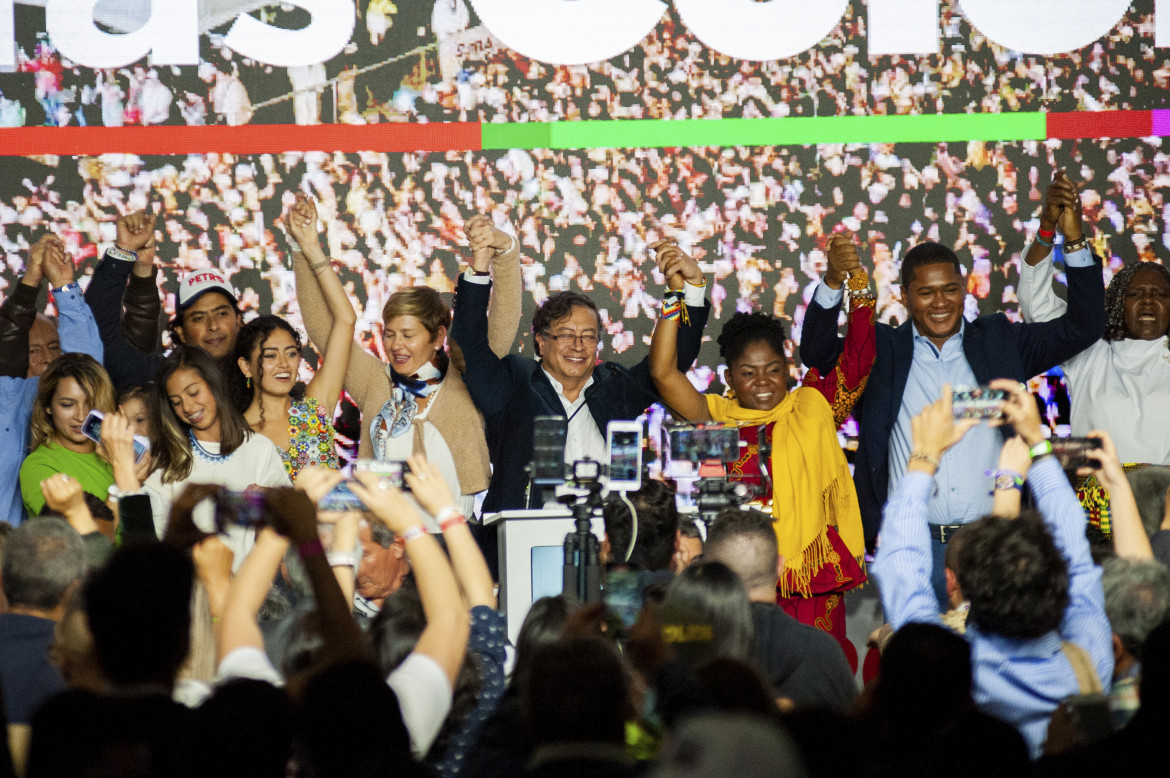Analysis
After Petro's victory in Colombia, Lula’s in Brazil could mark a historic unity
Petro has indicated the need to redefine the relationship between North and South America, characterized for nearly a century by the opposition between ‘Pan-Americanism’ and ‘Latin Americanism.’

The impact of the victory in Colombia of Gustavo Petro and his leftist coalition, Pacto Histórico, is enormous for the part of America south of the Rio Bravo. “What is coming will be real change,” said the new president-elect, talking about the situation of Colombia, a country that, throughout almost all of its history, has been dominated by an oligarchy linked inseparably with the United States – one that seems in no way willing to set aside its privileges voluntarily.
The will to change expressed by Petro also affects the political balance of the continent that Washington calls the “Western Hemisphere” and whose South it considers its backyard – or, more recently, with President Joe Biden, its front yard. Colombia is called an “extra-NATO ally” of the United States, where the powerful northern neighbor has stationed at least eight military bases.
Less than a month ago, U.S. Democratic Congressman (and “hawk”) Bob Menéndez had presented a bill that aimed to codify this type of affiliation between Colombia and NATO, to ensure “international security.” Also, before the elections, General Laura Richardson, commander of the U.S. Southern Command, had traveled to Bogota to discuss with the leadership of the Colombian Armed Forces about the permanence of both the military-strategic alliance between the two countries and the U.S. bases in Colombia, even in the event of a Petro victory.
The day after winning the presidency, Petro had a 20-minute telephone conversation with U.S. Secretary of State Antony Blinken on topics such as the peace process in Colombia, climate change, and how the Washington-desired fight against drug trafficking can be combined with the newly elected Colombian president’s goal of decreasing violence in rural areas of the country. As far as is known, there was no mention of U.S. military bases, DEA meddling, or possible entry into the Atlantic Alliance. These are all issues that need time to be addressed.
However, both in his campaign and in his first statements after victory, Petro has indicated the need to redefine the relationship between North and South America. These relations have been characterized for nearly a century by the opposition between “Pan-Americanism” and “Latin Americanism.”
In other words, this is a clash between the consequences of the Monroe doctrine, which wants the subcontinent south of the Rio Bravo to be under the imperial control of the U.S., and Bolivarism, that is, the claim to the historical-cultural-linguistic unity of the countries of Latin America and the need to implement political and economic integration to deal with geopolitical rivals, primarily the U.S.
This is a contrast that is not only confined to the geopolitical conceptions and alignments of the two Americas, but also contains a crucial identity-civilizational aspect, which makes it all the more difficult to contend with. By “Pan-Americanism” one means Latin America’s desire to stand out as belonging to Western civilization, which for almost a century has been identified with the democratic-liberal institutions of the United States, which reserves for itself the “manifest destiny” of exporting them. While “Latin Americanism” denotes a movement reactive against U.S. expansionism, which claims the region belongs to another cultural whole, “criollo” in Spanish terms, a Latin American civilization. (Although the latter has great problems in redefining itself vis-à-vis native peoples, triggering crises involving almost the entire subcontinent.)
In his visit to the Caribbean and Cuba in mid-May, Mexican President Andrés Manuel López Obrador (known as AMLO) had referred to the need for the Latin American progressive movement to emerge from this clash.
He proposed that America south of the Rio Bravo should begin a unification process modeled after the EU and, in this new dimension, establish a different relationship with the United States, on the basis of collaboration, mutual recognition and not conflict. One of Amlo’s demands to start such a process was that Washington should tamp down – not to say shelve entirely – the Organization of American States (OEA in Spanish), the armed fist of “Pan-Americanism.”
In the same vein, Lula da Silva, presenting his candidacy for the upcoming October presidential election in Brazil along with centrist Gerardo Alckim, proposed the creation of a single currency for the subcontinent as a first step towards a new “Latin Americanism.”
In his speech after his election victory, Petro signaled his intention to play a role in this new perspective. He proposed that Latin American countries unite to deal with Washington together and lay the groundwork for an “energy transition” to address the damage of climate change and build “a decarbonized economy, an economy of life for all of America.”
For domestic political reasons, essentially in order to seek a bridge with moderates in the Republican ranks, President Joe Biden, after a series of hesitations, slammed the door in the face to AMLO’s proposals, maintaining the exclusion of Cuba, Venezuela and Nicaragua from the Los Angeles Summit of the Americas – and thus reaffirming the validity of the Monroe Doctrine.
Should Lula win in October, however, and return to the presidency of Brazil, giving far greater weight to a new, less ideological and more pragmatic Latin American progressive movement, it will be more difficult, and dangerous, for the Biden administration to miss this historic opportunity.
Originally published at https://ilmanifesto.it/la-vittoria-di-petro-in-colombia-vale-un-continente on 2022-07-01
